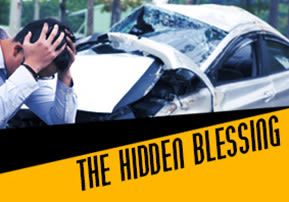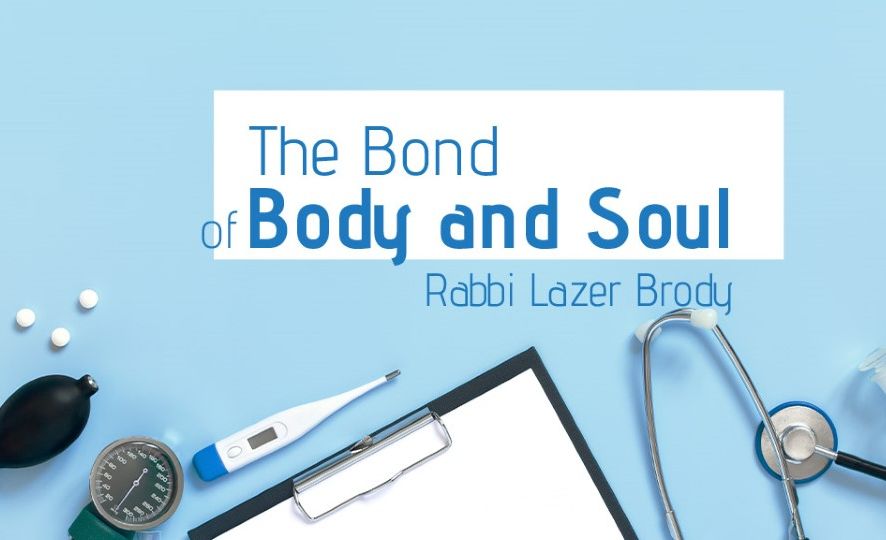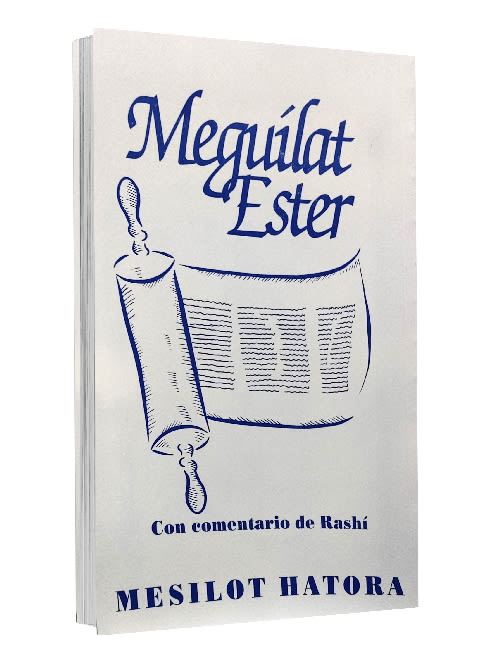
Metzora: The Hidden Blessing
What looks like an affliction to our flesh-and-blood eyes is probably a hidden blessing that we never dared dream of; with emuna, there's no bad...

The Singer family drove north on the old road from Tel Aviv to Haifa, looking forward to their Israel Independence Day picnic up in the Carmel Mountains overlooking the Mediterranean coast. The day was gorgeous and they were looking forward to some quality family time, with parents and all six children piled into their 4-wheel drive family recreational vehicle.
As they passed the Arab village of Faradis, a tractor-trailer hauling tremendous bales of hay suddenly pulled on to the main road right in front of the Singer family. Mr. Singer slammed on the brakes but there was no time; his car careened full force into the trailer. Instantaneously, the front of the care caved in like the walls of an accordion. Thanks to modern safety technology and air bags, the family was jolted and traumatized, but miraculously unscathed. That is, all except for 7-year old Aral'e – he had a nasty gash on his forehead and was unconscious.
Within moments, like angels descending from Heaven, a team of Hatzala medics from nearby Zichron  Yaacov arrived on the scene. Quickly checking every member of the family, they pounced like protective mother-bears on Aral'e, rushing him off to the emergency ward of Hillel Yaffa Hospital in Hadera.
Yaacov arrived on the scene. Quickly checking every member of the family, they pounced like protective mother-bears on Aral'e, rushing him off to the emergency ward of Hillel Yaffa Hospital in Hadera.
The rest of the Singer family received routine checkups. Other than the normal post-trauma symptoms, they were unhurt. Their wreck of a car had been towed away. They didn't want to order a taxi and go home without Aral'e. They had no choice – with a head injury, Aral'e would have to be admitted to the hospital and undergo a battery of tests. First, he had to regain consciousness. Mr. Singer went home with the children and Mrs. Singer remained in the hospital with Aral'e.
The next day, the Singers were called in to a consultation with the department heads of neurosurgery and oncology. With Hashem's infinite compassion, Aral'e woke up the next morning, hungry and thirsty. His CAT scan revealed something most surprising – a malignant tumor in its beginning stages, at the base of the cerebellum right above the brain stem.
The Singers were shocked, yet the doctors were smiling, optimistic and not at all upset. They explained to the Singers that once the tumor grew to the size that it would impair Aral'e movement of give him headaches, it would already be too late. In their words, the Singers had been graced with a "stroke of good fortune." At this stage, Aral'e tumor could be removed with relatively high chances of success.
The Singer story is a happily-ever-after one. Aral'e has already had his Bar-Mitzva and he is a popular boy who excels in his studies.
Were it not for the total wreck and the concussion that turned a picnic day into a tragedy, no one would have ever thought of taking little Aral'e for a neurological checkup. Within several months, Aral'e would have become paralyzed; he certainly wouldn't have reached his ninth birthday. Yet thanks to Hashem's intervention, the Mr. and Mrs. Singer will hopefully be able to dance at the wedding of Arale's children…
"It looks to me like an affliction in the house" (Leviticus 14:35).
The Torah in this week's portion Metzora talks about a a weird phenomenon, a leprous affliction in the wall of a house. Physically, it looks like some mold infection, but it's not caused by a spore, fungus or any other infectious organism. It's spiritual.
When Joshua and the Jewish People conquered the Promised Land, they moved into the houses left vacant by the Amorites. They had no idea what was hidden in the thick earthen walls of the houses. Hashem sent a type of leprous affliction to the wall of a house; according to Torah, the homeowner wasn't allowed to decide on his own whether this blemish was leprous and spiritually contaminated or not. He had to summon a Kohen, a priest, and to ask him. If the Kohen would deem this a leprous affliction in the wall, then affected portion of the wall would have to be removed, disposed of in a designated place, and replaced with new bricks and mortar. The homeowner would knock a hole in the wall with a sledgehammer and discover the gold treasure!
Let's be exacting in what the Torah says – "it looks to me like an affliction" – many things in our lives seem bad, but our flesh-and-blood eyes can't always discern the truth. As in the Torah's case of the leprosy in the walls of the Singer family's car accident, what looks to us like an affliction is none other than an amazing hidden blessing from Hashem. With emuna we know that everything Hashem does is for our very best, even if it looks otherwise.
Hashem, you're the greatest!







Tell us what you think!
Thank you for your comment!
It will be published after approval by the Editor.